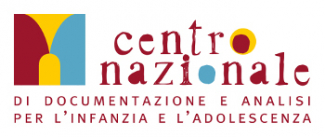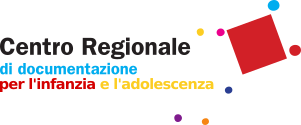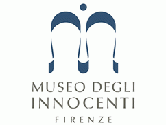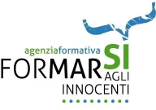Educating in Complexity
Accompanying and training pathway implemented since 2015 to support the City of Naples in revising its system of socio-educational interventions aimed at children and families.
This pathway is still active today, it is constantly updated and reshaped, and supported by the production of a series of publications and the development of information and documentation systems.
Working area
Project type

The pathway is called Educare nella complessità: percorso di formazione e accompagnamento allo sviluppo dei servizi sociali e socio-educativi nel Comune di Napoli (Educating in complexity: training and supporting the development of social and socio-educational services in the City of Naples). This is a title that is also a cue to the method and approach that have been adopted: neither a project nor a programme of interventions but a continuous process. A process that has to be supported by specific and targeted actions. These actions are designed with managers, operators and educators who work in the services together with the children, adolescents and families who use these services and always starting from operational practices and a theoretical and methodological reflection on them. A circular rather than linear pathway in which reflexivity on educational action becomes an opportunity for growth for everyone.
Genesis
One has to go back more than six years to understand the genesis and evolution of the collaboration between the City of Naples and the Istituto degli Innocenti. Exactly at the end of 2015, when the Campania regional capital's Welfare Department, together with the Service for Childhood and Adolescence Policies, decided to review the system of socio-educational interventions to support minors and families. A decision was made to involve the Istituto degli Innocenti in designing support and training measures with actions aimed at supporting a process of cultural repositioning of the services, a reflection on the meaning of educational action and the role of the operators, and the development of appropriate integrated working methods between the public and private sectors.
Actors and Services Involved
This was the beginning of the technical, scientific and generic support by the Institute's experts that continues to this day and has involved the entire socio-educational intervention system of the City of Naples: the central offices of the municipal administration and the local social service centres but also, and above all, the local socio-educational services. In detail:
Multipurpose Day Care Centres: semi-residential facilities with opening and closing hours to welcome children and young people in their own spaces. These Centres have been set up by the private social sector and are very deeply rooted in the Neapolitan area;
Local Education Workshops (LET): part of local services with their own premises, they are characterised by being local and this means that they also carry out street entertainment activities;
Local family centres: they offer services to promote parenting skills and families’ well-being by encouraging processes that support relationships, whether between couples or between children and parents, with a focus on family crises (separation, divorce and child custody).
Interventions and Objectives
There are three main types of intervention around which the partnership between the City of Naples and the Institute has been structured from the outset:
Organisational and methodological innovation through training, supervision and research;
Process analysis and data organisation through the creation of tools for documenting and organising information;
Collection and documentation of the experience.
The aim of all these interventions is to develop methodological competence to increase the quality of interventions and services as a whole, but also to raise awareness of the relationship between the theoretical and methodological and technical dimensions of educational work and to consolidate the information system with a view to enhancing its functionality.
An Educational ‘Building Site’ that is Still Open
This is the path that has been followed up to now with the development and management of a Documentary System for the files of the Child and Adolescent Services of the City of Naples. This system is taking shape in these very months and will soon be freely available for consultation. Just one of the results of the work done in recent years. In the pipeline, in fact, there is also the ‘Community of Practice’ Workshop of the socio-educational services (LET, day care and family centres). All this in order to give continuity to that learning process which, in recent years, has been essentially social and interactive and has been of value not only in itself but, above all, as a design tool and key to addressing organisational issues.
At the same time, strengthening the Information System to monitor and evaluate daytime socio-educational services and interventions is moving forward, with the aim of improving the quality of the data entered and perfecting the reporting system to enable it to suitably support the design and evaluation of interventions. All of this is accompanied by an in-depth study on the evaluation practices of LETs, involving the educators and coordinators of the Local Education Workshops.
2015-1018 Multi-annual Agreement
At the origin of it all, there were two study days on 9 and 10 December 2015 in Naples that saw the attendance of over 200 operators from all types of services. The study days focused on the complexity of educational interventions and came up with a series of contributions close to the work of the Neapolitan socio-educational services. This led to a training and research process that, in turn, resulted in a shared guidance document entitled Educare alla complessità: orientamenti e sfide (Educating to complexity: guidelines and challenges) and in defining and launching the monitoring system. In 2017, on the other hand, the work aimed at increasing educators’ methodological competence to improve the quality of their interventions and services as well as awareness of the relationship between theory, methodology and technical tools, but also to increase integration between professional social services and local socio-educational services. More than 250 operators and educators were involved and the summary of the course can be found in a new publication entitled Educare nella complessità: pratiche e riflessioni (Educating in complexity: practices and reflections). At the same time, the Information System to monitor the activities and users of the daytime socio-educational services in the Naples area was implemented and activated. Finally, in 2018, the third volume entitled Educare alla complessità: metodologie e strumenti (Educating to complexity: methodologies and tools) was published. It contains the outcomes of the 3-year training course.
2019-1018 Multi-Annual Agreement
The pathway developed by the Istituto degli Innocenti within the framework of the agreement provided for the implementation of training and support initiatives to enhance the skills of the operators of the daytime socio-educational services and the residential services for minors of the Municipality of Naples. On the basis of this document, the Institute also contributed to consolidated the information system to collect monitoring data and develop awareness of the relationship between theory and methodological and technical dimensions in educational work, with particular focus on evaluation and documentation.
The plan of activities - defined according to the factors that have emerged from the work carried out and the discussion with the representatives of the municipal administration - aims at carrying on with the work that has been undertaken so far and has the following objectives:
Consolidating the pathways set in motion and supporting the practical acquisition of the methodological and operational guidelines shared in recent years by organising training and supervision initiatives for operators of local educational workshops, multifunctional day care centres, local family centres and residential services;
Promoting seminars for operators of socio-educational services and Local Social Service Centres, and coordinators of the projects addressed to adolescents;
Promoting the implementation of the information system by the operators involved while carry on supporting operators and social workers, and developing the monitoring function of the design and assessment of the outcomes;
Promoting the implementation of the documentation platform for projects and experiences to popularise, strengthen and disseminate the documentary heritage.
Last update: 03/03/2023 - 16:52





